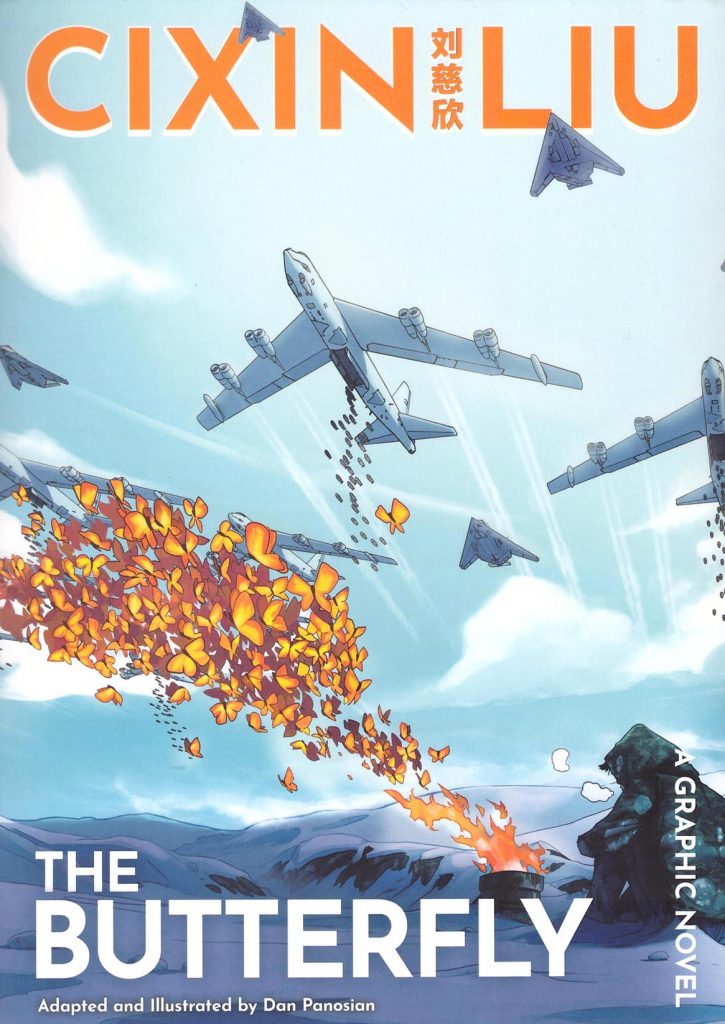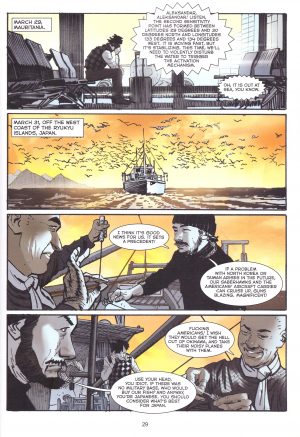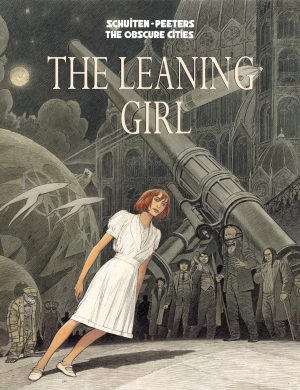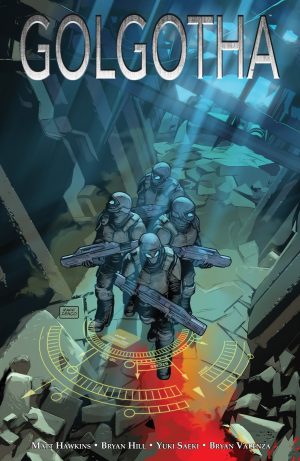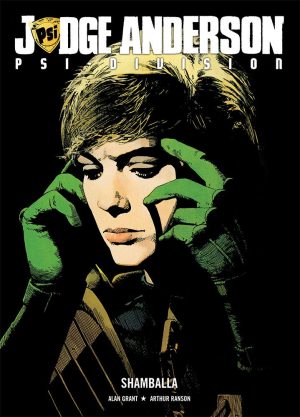Review by Frank Plowright
Cixin Liu is a Chinese science fiction author, writer of several novels and of several short story collections. He’s imaginative and prolific, a back cover quote from the New Yorker likening him to Arthur C. Clarke. The Butterfly is part of an ambitious project in which comic creators of various nationalities are brought together to adapt Liu’s stories, in this case Dan Panosian handling both the writing and art, with distinctive colouring from Fabiana Mascolo.
As it’s central theme The Butterfly takes the philosophical concept of a butterfly fluttering its wings in the Amazon initiating what can become a vast string of consequences. Liu takes that a step further by having a scientist in Belgrade named Aleksandar discovering that Earth’s atmosphere has especially sensitive points, and activating them may lead to a form of weather control. The story is set during Yugoslavia’s 1990s civil war, so very early in the era of digital technology, and the limitations of that are integral to the plot. Aleksandar is convinced his calculations are correct, but there’s a lack of computers able to process data fast enough.
While never overwhelming a fast-paced story, Liu uses The Butterfly to make several points about the world as it remains, one being how the cost of just a single Tomahawk missile could bring untold benefit to a poor country. He also comments on the ongoing or recent conflicts of the 1990s, and ecological warnings. It’s a nicely balanced story because its established Aleksandar only works for the good of mankind, and particularly his own area. If he can generate clouds then the bombing will stop and he has a second, heart-rending problem.
Although it doesn’t seem that way at first, The Butterfly prioritises emotional depth to a far greater degree than many other graphic novel adaptations of Liu’s works, and the science fiction aspects are minimal. Panosian brings out the humanity, ensuring that despite the tragedy of war and the human cost, there are also moments of joy. However, where an otherwise admirable adaptation falls down is with the epilogue pages. It might take a couple of readings before the penny drops, which is down to Panosian not distinguishing his cast well enough. Still, the epilogue isn’t needed to appreciate what a fine story this is.
